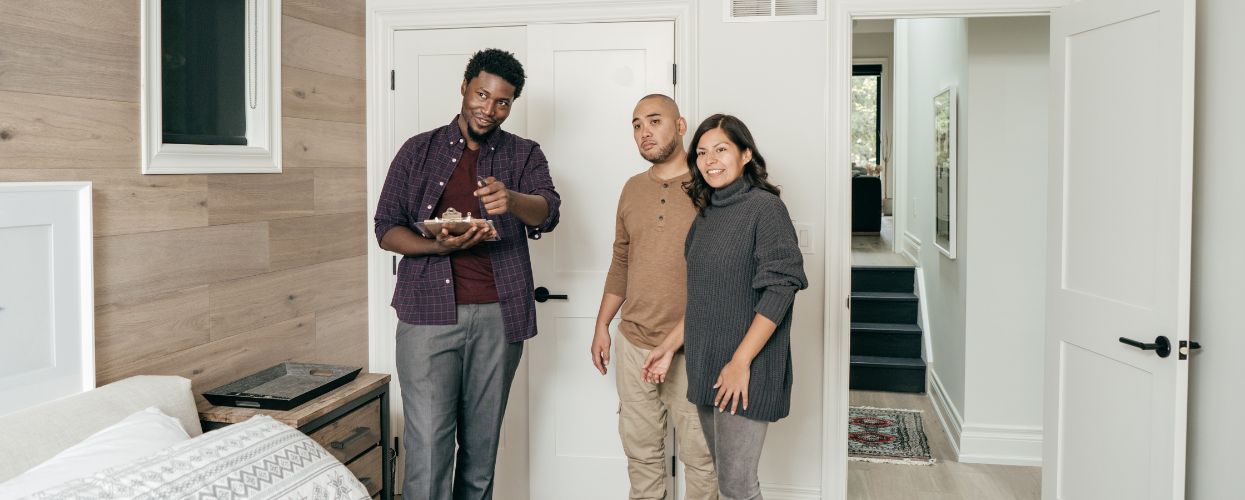The age-old debate of buying vs renting a home has been a topic of discussion for many years. Whether it is smarter renting or buying is not just about finances. In fact it involves considering your lifestyle, job stability, and future plans. Let’s delve into the pros and cons of both options to help you make an informed decision.
Before we dive into the specifics, understand what the two terms mean is important. Buying a home means purchasing a property outright or through mortgage financing. On the other hand, renting involves paying a monthly fee to live in someone else’s property.

Financial Implications: Buying vs Renting
One of the most significant factors when deciding whether it’s smarter renting or buying is the financial implications.
BUYING
PROS: When you buy a house, you’re making a long-term investment. Over time, your property can appreciate in value, providing you with substantial returns if you decide to sell. Additionally, owning a home allows you to build equity over time as you pay off your mortgage. While paying your mortgage might feel similar to paying rent, it’s completely different. Every month, part of your mortgage payment means more of your home is becoming your financial asset.
CONS: Buying also comes with substantial upfront costs such as down payment, closing costs and maintenance expenses which can be quite hefty. Understand whay these payments could be before choosing to buy. In addition, there’s always the risk that your property might depreciate due to market fluctuations and location. It’s important to understand the real estate market in the area where you are looking to buy and historic statistics for location specific property values.

RENTING
PROS: Renting generally requires less upfront cost – typically just first and last month’s rent along with a security deposit. Monthly rent may also cover utilities and maintenance costs that homeowners have to pay out-of-pocket.
CONTS: Unlike homeownership where monthly payments go towards building equity in an asset that could appreciate over time; renters do not see any return on their monthly payments.
Lifestyle Considerations
Beyond finances, lifestyle plays an essential role in whether is smarter in the renting vs. buying decision-making process.
BUYING
PROS:
1. Stability and freedom to customize your living space.
2. Peace of Mind: When you own a home, you control everything about your home. You decide how it looks and how long you’ll stay. You can change the home, decorate, and make it your own. In other words, you’re in charge of your own destiny instead of relying on your landlord to make decisions for you. Plus, never worry about getting an eviction notice if your landlord sells the property.
3. Predictable Monthly Payments: Rent is unpredictable. As a consequence, it can increase without your control. On the other hand, a fixed-rate mortgage means more predictable monthly payments. While there may be instances (like improved home value, property taxes, and insurance rates) which could affect your payment, these don’t happen as often as fluctuations in rent. In fact, fixed monthly payments make it easier to budget and save money.
CONS:
Homeownership comes with responsibility for all maintenance, repairs, and improvements. This can be time-consuming and costly.

RENTING
PROS:
Renting offers more flexibility – you can move easily without the hassle of selling a property. It’s an ideal option for those who frequently relocate for work or prefer not to deal with home maintenance and repairs.
CONS:
Renters often have limited control over their living space and may face restrictions on things like pet ownership or interior modifications.
The Impact of Market Conditions
Market conditions significantly influence the buying vs renting decision. In a seller’s market where home prices are high, renting might be a more affordable option. Conversely, in a buyer’s market where home prices are low, buying could be a smarter financial move. A local real estate professional who knows the market and historic statistics should be your go-to source for current conditions. Either way, real estate prices typically increases year over year. As a result, waiting to buy could cost significantly more down the road.
Additionally, interest rates play a crucial role in this decision. Lower mortgage rates make buying more attractive as they reduce the cost of borrowing money to buy a home. Choosing the right mortgage lender will make an impact on the process and on what you might be able to afford.
What is Smarter: Renting or Buying?
The decision between buying vs renting is highly personal and depends on various factors. These include your financial situation, lifestyle preferences, and market conditions. There are additional key factors to consider which include your current debt, your age, and more.
Buying could be beneficial if you’re financially stable with a steady income source and you plan to stay in one place for an extended period. As a result, you will most likely build equity over time. However, if you value flexibility or are uncertain about your long-term plans, renting might be the smarter choice. This option won’t tie you down to one location or burden you with homeownership responsibilities.
At the end of the day, there isn’t a right or wrong answer to whether it’s smarter renting or buying. In fact, it all depends on your individual circumstances and goals. Therefore, before making this significant decision, weigh all factors carefully and seek advice from a local real estate professional who understand the market help define your goals.

